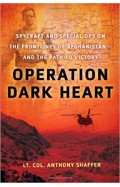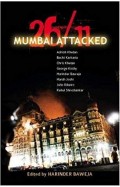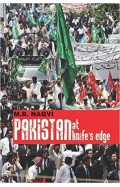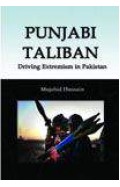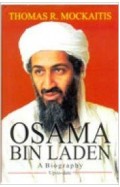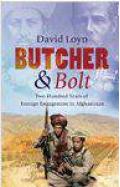- Home
- BOOKLOVERS FRIDAY UPTO 85% OFF
- 75% OFF
- Prisoners - A Muslim and a Jew Across the Middle East Divide
Prisoners - A Muslim and a Jew Across the Middle East Divide
By: Jeffrey Goldberg
-
Rs 695.00
- Rs 2,780.00
- 75%
You save Rs 2,085.00.
Due to constant currency fluctuation, prices are subject to change with or without notice.
We are offering a high discount due to slightly damage.
Soon, as a military policeman in the Israeli army, he was sent to the Ketziot military prison camp, a barbed-wire city of tents and machine gun towers buried deep in the Negev Desert. Ketziot held six thousand Arabs, the flower of the Intifada: its rock-throwers, knifemen, bomb-makers, and propagandists. He realized that this was an extraordinary opportunity to learn from them about themselves, especially because among the prisoners may have been the future leaders of Palestine.
Prisoners is an account of life in that harsh desert prison—mean, overcrowded, and violent — and of Goldberg's extraordinary dialogue with Rafiq, which continues to this day.
We hear their accusations, explanations, fears, prejudices, and aspirations. We see how their relationship deepened over the years as Goldberg returned to Washington, D.C., where Rafiq, quite coincidentally, had become a graduate student, and as the Middle East cycled through periods of soaring hope and ceaseless despair. And we see again and again how these two men—both of them loyal sons of their warring peoples—confront their religious, cultural, and political differences in ways that allowed them to finally acknowledge a true, if necessarily tenuous, friendship.
A riveting, deeply affecting book: spare, impassioned, energetic, and unstinting in its candor about the truths that lie buried within the animosities of the Middle East.
We are offering a high discount due to slightly damage.
Soon, as a military policeman in the Israeli army, he was sent to the Ketziot military prison camp, a barbed-wire city of tents and machine gun towers buried deep in the Negev Desert. Ketziot held six thousand Arabs, the flower of the Intifada: its rock-throwers, knifemen, bomb-makers, and propagandists. He realized that this was an extraordinary opportunity to learn from them about themselves, especially because among the prisoners may have been the future leaders of Palestine.
Prisoners is an account of life in that harsh desert prison—mean, overcrowded, and violent — and of Goldberg's extraordinary dialogue with Rafiq, which continues to this day.
We hear their accusations, explanations, fears, prejudices, and aspirations. We see how their relationship deepened over the years as Goldberg returned to Washington, D.C., where Rafiq, quite coincidentally, had become a graduate student, and as the Middle East cycled through periods of soaring hope and ceaseless despair. And we see again and again how these two men—both of them loyal sons of their warring peoples—confront their religious, cultural, and political differences in ways that allowed them to finally acknowledge a true, if necessarily tenuous, friendship.
A riveting, deeply affecting book: spare, impassioned, energetic, and unstinting in its candor about the truths that lie buried within the animosities of the Middle East.
Prisoners - A Muslim and a Jew Across the Middle East Divide
By: Jeffrey Goldberg
Rs 695.00 Rs 2,780.00 Ex Tax :Rs 695.00
Zubin Mehta: A Musical Journey (An Authorized Biography)
By: VOID - Bakhtiar K. Dadabhoy
Rs 525.00 Rs 1,050.00 Ex Tax :Rs 525.00
Myths Illusions and Peace: Finding a New Direction for America in the Middle East
By: Dennis Ross
Rs 985.50 Rs 1,095.00 Ex Tax :Rs 985.50
Operation Dark Heart: Spycraft And Special Ops On The Frontlines Of Afghanistan And The Path To Victory
By: Anthony Shaffer
Rs 2,025.00 Rs 2,250.00 Ex Tax :Rs 2,025.00
Anna Hazare: The Face Of Indias Fight Against Corruption
By: Pradeep Thakur
Rs 240.00 Rs 300.00 Ex Tax :Rs 240.00
How To Win A Cosmic War God Globalization And The End Of War
By: Reza Aslan
Rs 625.50 Rs 695.00 Ex Tax :Rs 625.50
No similar books from this author available at the moment.
No recently viewed books available at the moment.
Zubin Mehta: A Musical Journey (An Authorized Biography)
By: VOID - Bakhtiar K. Dadabhoy
Rs 525.00 Rs 1,050.00 Ex Tax :Rs 525.00
Prisoners - A Muslim and a Jew Across the Middle East Divide
By: Jeffrey Goldberg
Rs 695.00 Rs 2,780.00 Ex Tax :Rs 695.00











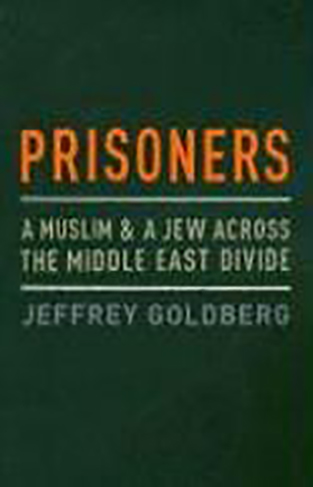
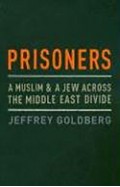
-120x187.jpg?q6)






